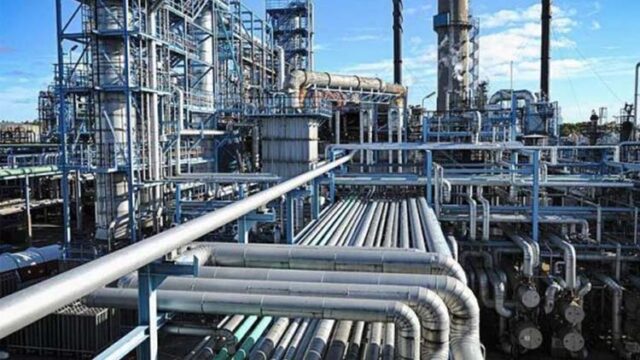Timothy Mgbere, the Secretary of the Alesa community stakeholders, has raised concerns over the operations of the newly rehabilitated Port-Harcourt Refinery. According to Mgbere, the petroleum products recently loaded from the refinery were not freshly refined, but rather products that had been stored in the facility’s tanks for the past three years.
Mgbere’s allegations came during his appearance on Arise TV, which was monitored by our correspondent on Thursday. He further revealed that only six trucks were loaded from the refinery on Tuesday, despite earlier claims that the refinery would be able to load 200 trucks daily.
Alesa, a key community in Eleme, Rivers State, is the host community for the Port-Harcourt Refinery. On Tuesday, the 60,000-capacity refinery resumed operations after several years of inactivity, initially generating optimism among Nigerians and industry stakeholders.
The Nigerian National Petroleum Corporation (NNPC) announced that the newly rehabilitated refinery, which has undergone upgrades with modern equipment, is now operating at 70% of its full capacity. The refinery’s expected daily output includes 1.5 million litres of diesel, 2.1 million litres of low-pour fuel oil, 1.4 million litres of straight-run gasoline (naphtha), and 900,000 litres of kerosene. NNPC also claimed that around 200 trucks of petrol would be distributed to the Nigerian market daily.
However, Mgbere expressed skepticism about these claims, calling the event held to mark the refinery’s reopening a “party” and questioning the actual functionality of the facility. He emphasized that the refinery’s units are not fully operational, describing the refinery’s activities as being limited to “skeletal operation.”
“The Port Harcourt refinery, also known as Area Five, is barely in operation,” Mgbere said. “What happened on Tuesday was just a mere show at the Port Harcourt depot. The refinery is not yet functioning as it should, and this is far from the celebration being portrayed in the media.”
Mgbere’s remarks highlight concerns within the Alesa community about the refinery’s true operational status and its impact on the local economy.





























